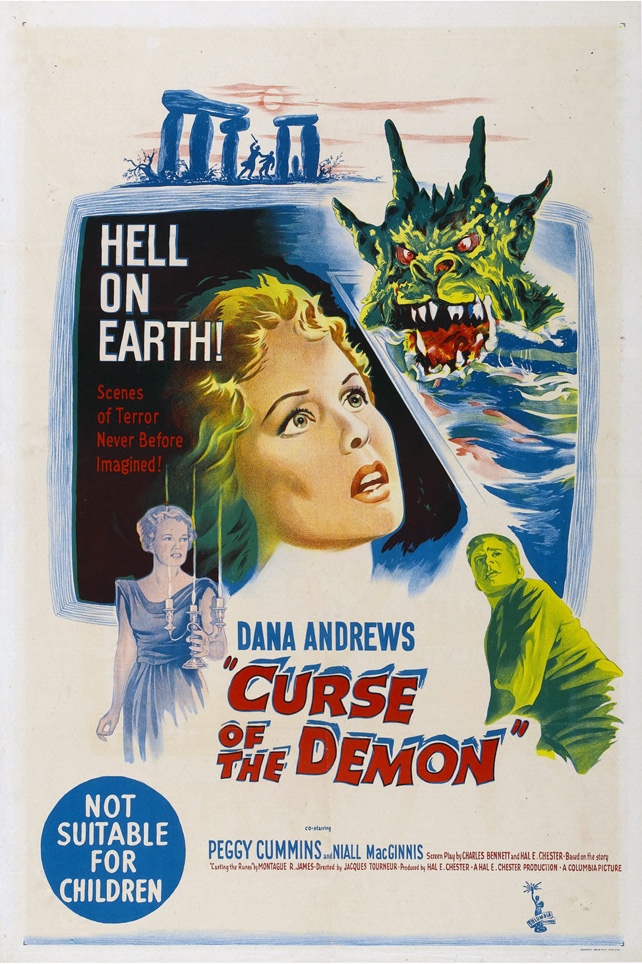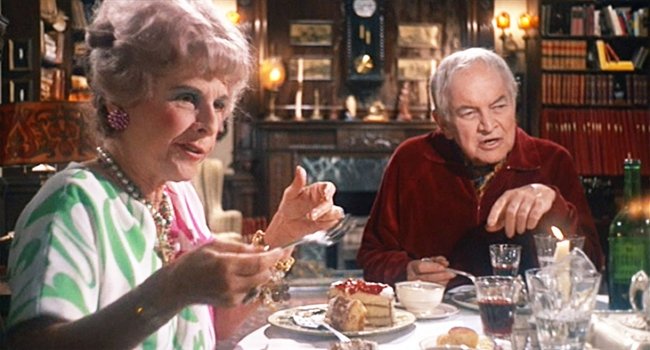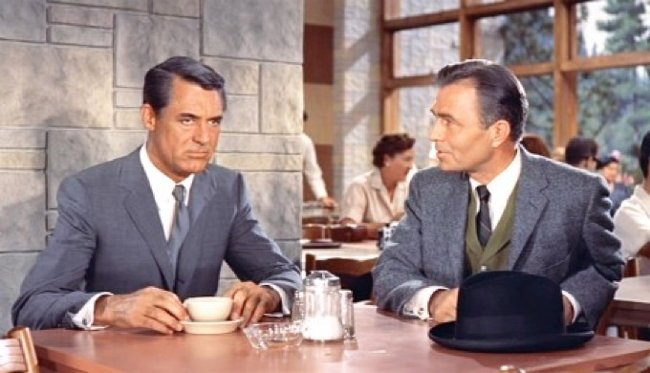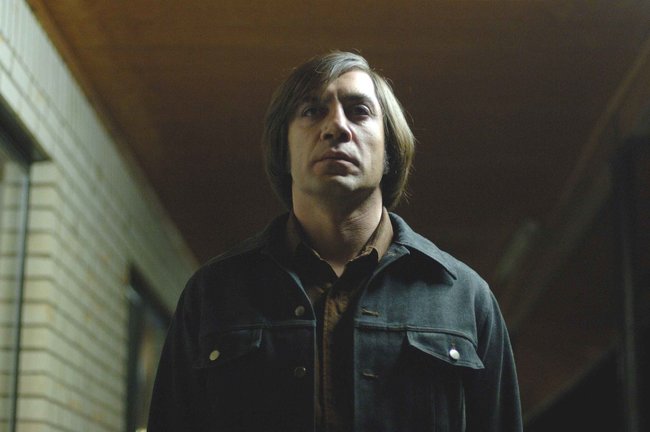It was my superlatively positive reaction to Sam Raimi’s Drag Me To Hell that finally spurred me into tracking down a copy of Jacques Tourneur 1957 semi-classic Night of The Demon aka Curse of the Demon.
Many reviews for Drag Me To Hell cited the influence of Night of the Demon — the nature of the curse is very similar in both films, specifically in regards to the physical possession of a certain material item determining who the demon will come for.
Night of the Demon is freaking awesome. The way it plays with the above-referenced notion that whomever has a particular parchment in their possession is marked for death is highly entertaining and relentlessly tense.

But the aspect of the film I loved the most was the bad guy — Dr. Julian Karswell, played by Niall MacGinnis. He is the head of a Devil-worshipping cult, but you’d never tell it from his demeanour. He’s polite, gentile and downright avuncular throughout the entire film. His actions and statements may spell doom for our protagonist John Holden (played by Dana Andrews), but he never betrays his sense of charm and decorum, even when things get really heated up.
I love it when villains refuse to engage in outwardly villainous behaviour. It adds something to their menace and helps them retain a certain mystique. Sure, they might be planning to push you into a vat of piranhas, but they won’t be rude about it.
Karswell almost makes you wanna be his friend, and the interaction between him and Holden is simply delicious.
He reminded me of the gold standard for kindly movie villains: (spoiler alert if you haven’t seen…) Rosemary’s Baby’s Minnie and Roman Castevet, played by Ruth Gordon and Sidney Blackmer.
As the stereotypical “kindly couple upstairs” Minnie and Roman foist themselves upon the hapless Rosemary (Mia Farrow) in the least suspicious way possible: displaying the classic overinterest of lonely elderly couple. They turn out to be Satanists who are manipulating Rosemary into giving birth to the Devil’s offspring, but they’re very nice about it.

The Castavets are two of the most memorable baddies in movie history – their apparent lack of threatening qualities only makes them creepier. Also, old people are scary. But the two actors do such a good job with their roles that I would probably still invite them over for tea if I moved into their building. I just wouldn’t let Minnie make it.
Banter-prone, well-behaved villains are most often associated with the Bond movies. But for all the great civil exchanges between 007 and his various nemeses, they all eventually ended up running around an exploding base with a gun calling for our Jim’s death. So rude.
I feel like many of the great Bond baddies (and Bond himself for that matter) were influenced by one of my other favorite “polite villains”: the great James Mason in North By Northwest. He’s doing everything he can to bring Cary Grant down, but he’s just so esteemed and articulate about it. Mason is an actor whose legacy doesn’t give his career full due — he was truly one of the greats, and nobody since has ever made social refinement seem so menacing.

Alan Rickman’s portrayal of Hans Gruber in 1988’s Die Hard set off a wave of European bad guys in action movies that still doesn’t appear to have fully abated. But few of the films in Die Hard’s wake managed to infuse their bad guy with the layers Rickman brought to Gruber.
He does eventually get all crazy with a gun, but he spends most of the film sarcastically going about his business and the character seems designed to undermine what we’d come to expect from movie bad guys.
I guess Hannibal Lecter never really loses his cool, but evil just seeps from his pores, so he doesn’t really count. It’s a similar situation with Javier Bardem’s Oscar-winning turn as the chilling Anton Chigurh in No Country For Old Men — he maintains his demeanour throughout, but still very outwardly villainous. Arnie in the original The Terminator almost counts. That robot never once loses his shit.

With the best kind of polite villains, there’s a sense that they would almost rather just be friends with whomever they’re being villainous towards. Baddies in the movie sense — i.e. people doing evil things for evil’s sake — don’t really exist in the real world. But if they did, I feel this is how they would behave: slightly reluctant to simply act evil, but still committed to their nefarious ends. This can add layers to their characterisations and helps overcome the threat to suspension of disbelief that a one-note villain brings.
I hope we’ll see some of this in action with Jesse Eisenberg’s Lex Luthor in Batman Vs. Superman: Dawn of Justice. That title just makes me think of breakfast though.
